Wednesday, 24 November 2021
A spoken word poet, a writer-podcaster and a stand-up comedian are the stars of a new video short film highlighting how the creative arts can help men and boys with eating disorders open up about their condition and even overcome it.
This engaging and enlightening film has been produced by the University of Nottingham’s Institute for Policy and Engagement and Lakeside Arts to showcase innovative research which uses artistic interpretations of personal narratives to raise awareness and understanding of eating disorders. This work will also feed into a £3.8m UKRI-funded research project, EDIFY, that aims to revolutionise eating disorders treatment.
The project is called Hungry for Words and was inspired by some alarming statistics which showed a 98% increase* in admissions of young men to hospital with eating problems between 2010 and 2018 – a higher increase than in girls and women. It has been nominated for Research Project of the Year 2021 by the Times Higher Education Awards, whose winners will be announced at a ceremony in London on Thursday 25th November.
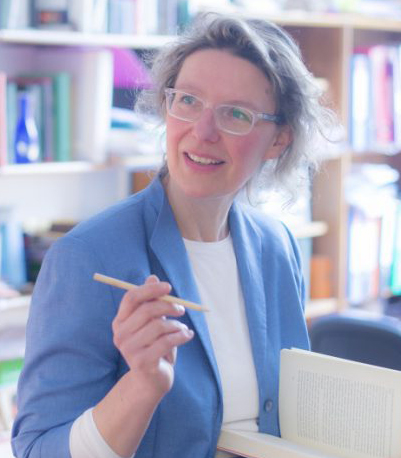 Professor Heike Bartel, School of Cultures, Languages and Area Studies
Professor Heike Bartel, School of Cultures, Languages and Area Studies
The researchers at the University of Nottingham have partnered with the First Steps charity to focus on the lived experiences of men and boys with disorders such as anorexia, bulimia, binge eating and addiction to exercise. Project leader, Professor Heike Bartel, from the School of Languages, Cultures and Area Studies, is exploring the use of creative writing, poetry, art, animation, and digital media to explore and raise awareness of an increasing problem that is traditionally perceived as only affecting women and girls.
Interviews in the film are wrapped around a spoken word poem, Keeping Control, written by M.T.Taylor as part of a poetry competition about eating disorders in men. It’s compellingly performed by Nottingham-based rap artist, Tyrone Moran-Healy.
Professor Bartel said: “The video is a compelling insight into how we are investigating the many ways that men with lived experience of eating disorders can use creativity to portray and share that experience. It gives them a chance to explore what they have gone through or are going through. There’s lots of evidence that creative practice helps in their recovery. It helps them to find a voice. To have their voices heard is very empowering and there’s also a therapeutic element in there that can even help them overcome their eating disorder.”
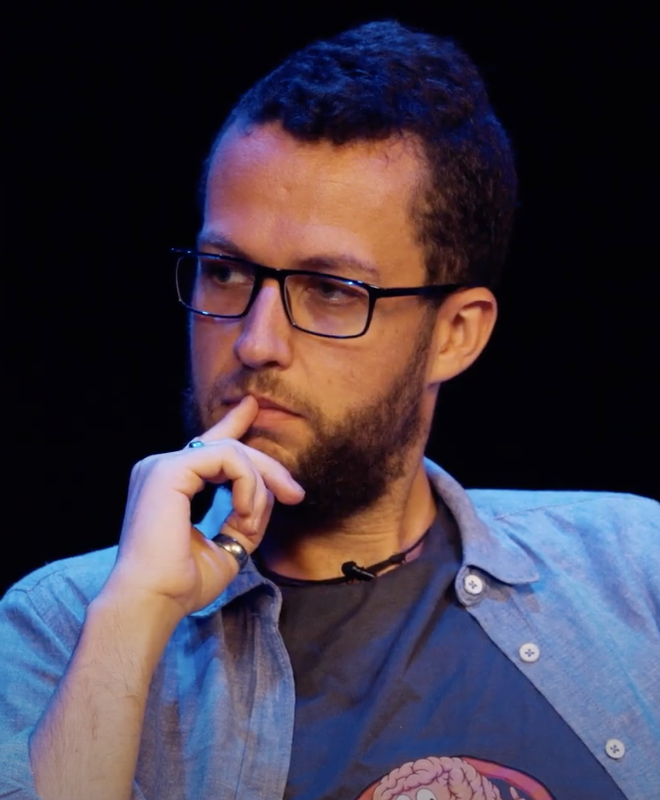 Comedian, Dave Chawner
Comedian, Dave Chawner
In the video, stand-up comedian, award-winning author and presenter Dave Chawner says: “I know that when I was developing anorexia, I wanted someone I could associate with to talk to. As a comedian I want to give my audiences the opportunity to engage with this subject through me. I think that comedy is a great way to normalise the conversation and get blokes talking about eating disorders. Making people laugh is a way of drawing them closer together and a way of making them listen to you. So, you can use comedy to communicate these issues and try to make people feel a little less uncomfortable talking about eating disorders, especially men.”
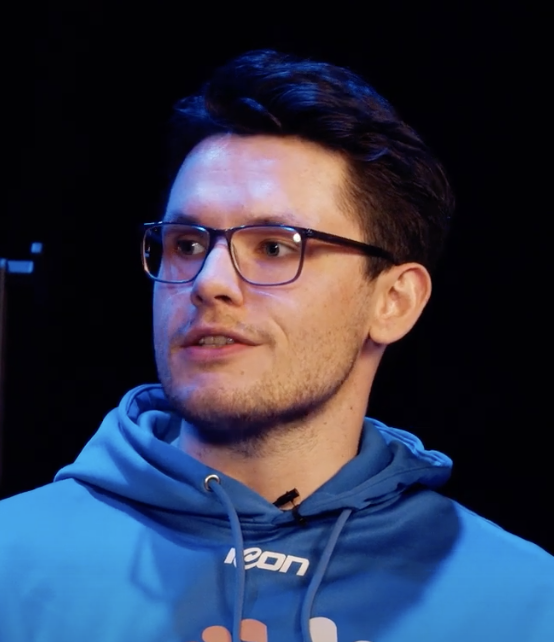 Writer and podcaster, George Mycock
Writer and podcaster, George Mycock
George Mycock, Writer and Podcaster, explains how being creative helps him face his problem and tackle it head on: “My writing and poetry allow me to delve deep into what’s going on with my eating disorder. It makes it concrete. Something that’s always in your head can become chaotic and confusing but as soon as you write down your thoughts or account of what happened on a particular occasion in black and white, it starts to make sense. As I started to think about them more clearly and I understood my own mental health issues more, I felt empowered to share more with my counsellor and in turn that turned into conversations with other people such as friends and family.”
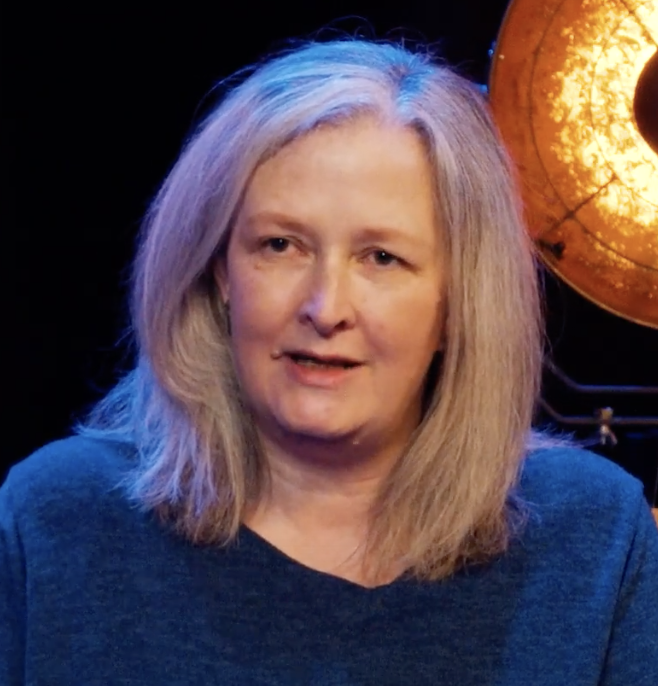 Playwright, Susan Moffat
Playwright, Susan Moffat
Playwright, Susan Moffat also features in the new film. Her play – Boy’s Not Right – has presented the issue in dramatic form. Susan said: “I was actually approached by an actor friend who has a lived experience of eating disorders to ask if I could write a play around eating disorders in men. It felt like an injustice really that there are people out there that have got these problems who are not been seen. It’s not presented as a real thing and obviously clinically it’s still predominantly seen as a female disorder, and I think that needs to change. Using the arts and the media will bring it more into the public eye.”
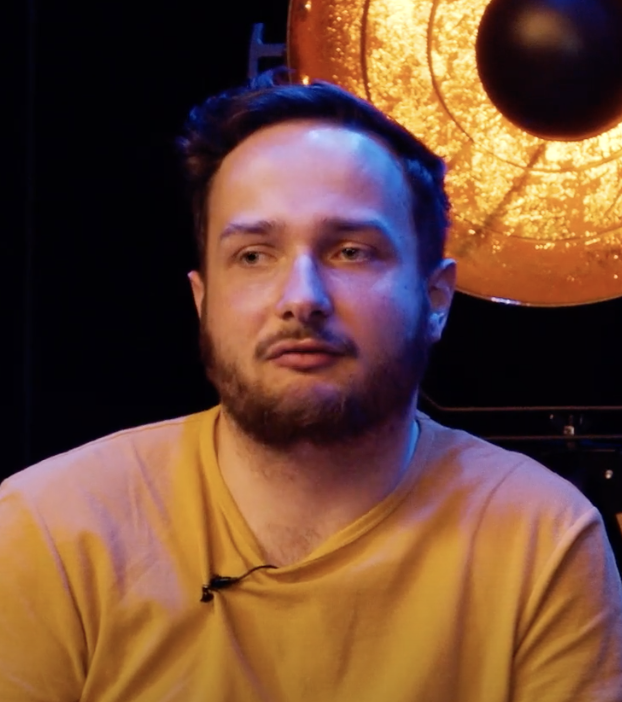 Sam Raby, Boys and Men Lead, First Steps ED charity
Sam Raby, Boys and Men Lead, First Steps ED charity
Sam Raby, First Steps ED charity Boys and Men Lead, said: “My role in the charity was created to address the gap in provision for boys and men who have eating disorders. It’s been great to be involved in this research and help debunk the myths that we have in society about people with eating disorders. One of the most powerful tools we use in our sessions for clients is an animation telling the story of how difficult it is for men to seek help for their eating disorder, for example, to go to the doctor and have to tell their complicated story in just a few minutes of consultation time.”
Professor Bartel’s team is currently completing a new animation on excessive exercise and eating disorders aimed to raise awareness among gym staff and sports professionals for this under- recognised but growing problem.
*Source: First Steps Eating Disorders Charity https://firststepsed.co.uk/
Story credits
For more information, please contact Professor Heike Bartel, School of Cultures, Languages and Area Studies, University of Nottingham via email heike.bartel@nottingham.ac.uk @ConsiderMaleEDs or Emma Rayner, Media Relations Manager on 07738 291242 or emma.rayner@nottingham.ac.uk
Notes to editors:
About the University of Nottingham
Ranked 97 in the world and 17th in the UK by the QS World University Rankings, the University of Nottingham is a founding member of Russell Group of research-intensive universities. Studying at the University of Nottingham is a life-changing experience, and we pride ourselves on unlocking the potential of our students. We have a pioneering spirit, expressed in the vision of our founder Sir Jesse Boot, which has seen us lead the way in establishing campuses in China and Malaysia - part of a globally connected network of education, research and industrial engagement.
Nottingham was crowned Sports University of the Year by The Times and Sunday Times Good University Guide 2024 – the third time it has been given the honour since 2018 – and by the Daily Mail University Guide 2024.
The university is among the best universities in the UK for the strength of our research, positioned seventh for research power in the UK according to REF 2021. The birthplace of discoveries such as MRI and ibuprofen, our innovations transform lives and tackle global problems such as sustainable food supplies, ending modern slavery, developing greener transport, and reducing reliance on fossil fuels.
The university is a major employer and industry partner - locally and globally - and our graduates are the third most targeted by the UK's top employers, according to The Graduate Market in 2024 report by High Fliers Research.
We lead the Universities for Nottingham initiative, in partnership with Nottingham Trent University, a pioneering collaboration between the city’s two world-class institutions to improve levels of prosperity, opportunity, sustainability, health and wellbeing for residents in the city and region we are proud to call home.
More news…